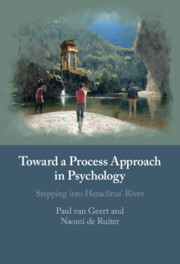Refine search
Actions for selected content:
41 results
Indigenous archaeology in Latin America. Towards an engaged, activist and intercultural archaeology
-
- Journal:
- Archaeological Dialogues , First View
- Published online by Cambridge University Press:
- 26 September 2025, pp. 1-19
-
- Article
-
- You have access
- Open access
- HTML
- Export citation
Chapter 2 - Why the Arts are fundamental
- from Part 1 - Why: the arts in education and society
-
- Book:
- Teaching the Arts
- Published online:
- 28 July 2025
- Print publication:
- 06 August 2025, pp 31-63
-
- Chapter
- Export citation
Chapter 12 - Quality Arts education and rich learning
- from Part 3 - How: Embedding the Arts in education
-
- Book:
- Teaching the Arts
- Published online:
- 28 July 2025
- Print publication:
- 06 August 2025, pp 363-387
-
- Chapter
- Export citation
Chapter 7 - Learning in music
- from Part 2 - What: the arts learning areas
-
- Book:
- Teaching the Arts
- Published online:
- 28 July 2025
- Print publication:
- 06 August 2025, pp 205-234
-
- Chapter
- Export citation
Chapter 1 - Maker’s Knowledge Traditions between Ancients and Moderns
-
- Book:
- Vico and the Maker's Knowledge Tradition
- Published online:
- 27 June 2025
- Print publication:
- 17 July 2025, pp 25-59
-
- Chapter
- Export citation
2 - Social Medicine in the Arab World
-
-
- Book:
- Medicine on a Larger Scale
- Published online:
- 05 May 2025
- Print publication:
- 22 May 2025, pp 40-59
-
- Chapter
-
- You have access
- Open access
- HTML
- Export citation
Chapter 13 - Final ruminations on the ‘unseen half’
- from Part 2 - Putting theory to work in educational research
-
-
- Book:
- Understanding Sociological Theory for Educational Practices
- Published online:
- 14 November 2024
- Print publication:
- 21 October 2024, pp 248-258
-
- Chapter
- Export citation
Praxis, Persistence, and Public Archaeology: Disrupting the Mission Myth at La Purísima Concepción
-
- Journal:
- American Antiquity / Volume 89 / Issue 3 / July 2024
- Published online by Cambridge University Press:
- 27 May 2024, pp. 399-416
- Print publication:
- July 2024
-
- Article
-
- You have access
- HTML
- Export citation
7 - Conclusion
- from Part III - Thinking Alternatives
-
- Book:
- Sustainable Development, International Law, and a Turn to African Legal Cosmologies
- Published online:
- 16 May 2024
- Print publication:
- 23 May 2024, pp 278-292
-
- Chapter
- Export citation
Apocalyptic praxis in Evagrius of Pontus and Francis of Assisi
-
- Journal:
- Scottish Journal of Theology / Volume 77 / Issue 3 / August 2024
- Published online by Cambridge University Press:
- 06 May 2024, pp. 260-273
- Print publication:
- August 2024
-
- Article
-
- You have access
- Open access
- HTML
- Export citation
40 - Spectatorship, Black Bodies, and Urban Education
- from Part III - Emerging Ethical Pathways and Frameworks
-
-
- Book:
- The Cambridge Handbook of Ethics and Education
- Published online:
- 07 March 2024
- Print publication:
- 14 March 2024, pp 846-867
-
- Chapter
- Export citation
Chapter 9 - The Church in David Tracy’s Theology
- from Part III - Church and World
-
-
- Book:
- Beyond the Analogical Imagination
- Published online:
- 28 September 2023
- Print publication:
- 12 October 2023, pp 192-208
-
- Chapter
- Export citation
31 - Activism and Political Organization
- from Part V - Institutional Life
-
-
- Book:
- The Cambridge Handbook for the Anthropology of Ethics
- Published online:
- 11 May 2023
- Print publication:
- 25 May 2023, pp 791-816
-
- Chapter
- Export citation
4 - The Humanities
-
- Book:
- Educating for Democracy
- Published online:
- 20 April 2023
- Print publication:
- 27 April 2023, pp 49-67
-
- Chapter
- Export citation
7 - Paulo Freire on Democratic Education
- from Part One - Historical Perspectives
-
-
- Book:
- The Cambridge Handbook of Democratic Education
- Published online:
- 20 April 2023
- Print publication:
- 27 April 2023, pp 90-107
-
- Chapter
- Export citation
10 - Liberationist Interpretation
- from Part II - Frameworks/Stances
-
-
- Book:
- The New Cambridge Companion to Biblical Interpretation
- Published online:
- 15 October 2022
- Print publication:
- 22 December 2022, pp 191-209
-
- Chapter
- Export citation
Chapter 3 - The Goal of Socrates
-
- Book:
- Toward a Process Approach in Psychology
- Published online:
- 14 July 2022
- Print publication:
- 28 July 2022, pp 44-60
-
- Chapter
- Export citation

Toward a Process Approach in Psychology
- Stepping into Heraclitus' River
-
- Published online:
- 14 July 2022
- Print publication:
- 28 July 2022
10 - Achieving human rights through social work practice
-
- Book:
- Human Rights and Social Work
- Published online:
- 22 July 2022
- Print publication:
- 12 July 2022, pp 179-205
-
- Chapter
- Export citation
9 - Critical Language Ethnography as a Community-Centered Research Paradigm
- from Part II - Research, Assessment, and Program Evaluation
-
-
- Book:
- The Cambridge Handbook of Community Psychology
- Published online:
- 16 December 2021
- Print publication:
- 16 December 2021, pp 175-196
-
- Chapter
- Export citation
